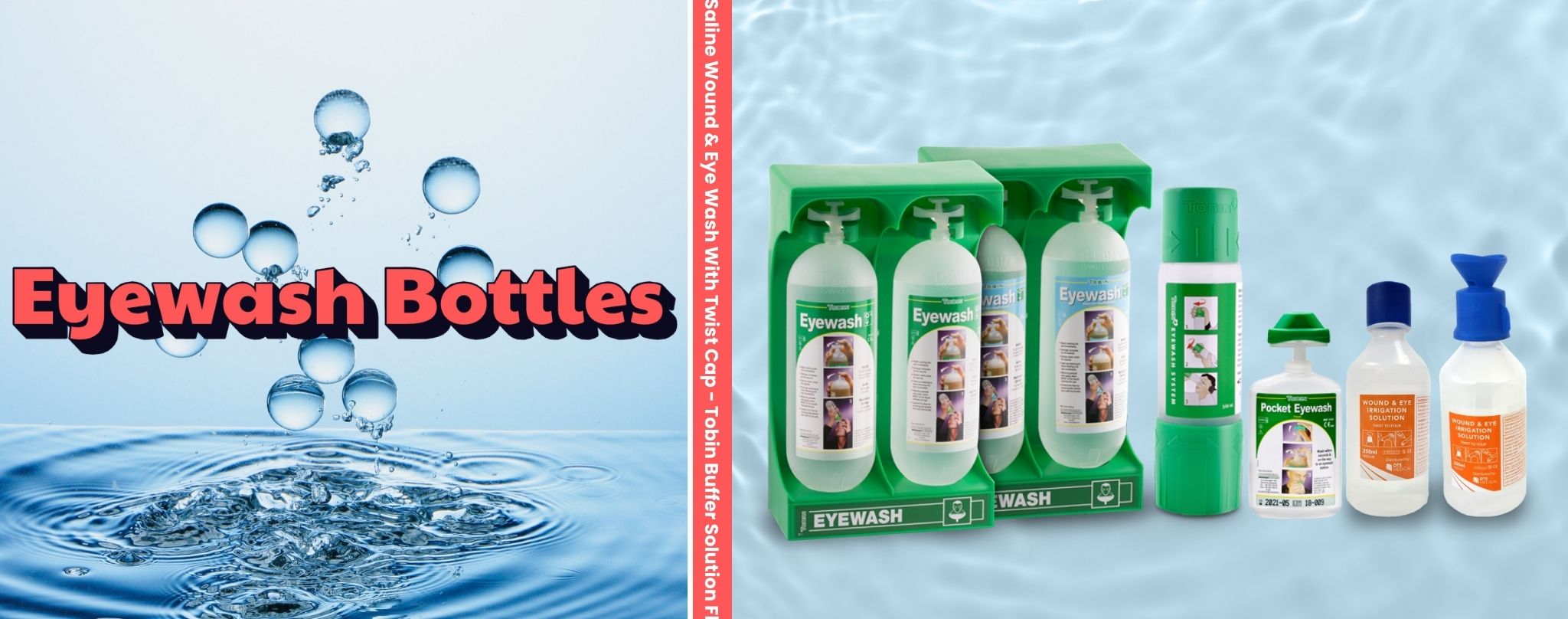[rifft_cart_progress]
Your cart and quote enquiry are empty.
Click here to start browsing our collection.
Click here to start browsing our collection.
Home / Shop / Emergency Showers and Eyewashes / Emergency Eyewashes / Emergency Eyewash Bottles
Ensure workplace safety with our complete range of Emergency Eyewash Bottles. Designed for quick, effective eye irrigation, these bottles help minimize injury during chemical exposure or debris incidents. Each product meets NZ safety standards for reliability and compliance.
Browse our product options below!
Read more…
Our Tobin Eyewash Bottles provide immediate relief and integrate seamlessly with Tobin Eyewash Kits. Each bottle contains sterile saline or specialized buffer solutions to neutralize acids and alkalis. Available in multiple configurations, these bottles ensure your eyewash stations are always ready for emergencies.
We also offer Dovetail Eyewash Bottles in three sizes: 100ml, 250ml, and 500ml. Each size comes with two cap options: a twist cap or a soft, eye-shaped shower rose. The shower rose delivers a gentle, controlled stream directly over the eye for safe and effective flushing.
Both Tobin and Dovetail Eyewash Bottles can be used to refill their respective eyewash kits, ensuring continuous readiness. Regularly replenishing your stations maintains compliance and guarantees prompt eye irrigation whenever needed.
Our eyewash bottles are compact, durable, and easy to use. They provide fast, gentle irrigation to reduce eye injury and meet workplace safety requirements. With convenient packaging options, including single-use or larger bottles, storage and deployment are simple.
Rifft Safety provides nationwide delivery and expert guidance for all emergency eyewash products. Our team can help you select the right bottles, solutions, and refills for your workplace needs.
Keep your eyewash stations stocked and ready. Shop our Emergency Eyewash Bottles online or contact our team for bulk orders or expert advice.
Read less

Be the first to hear about the latest products and industry insight